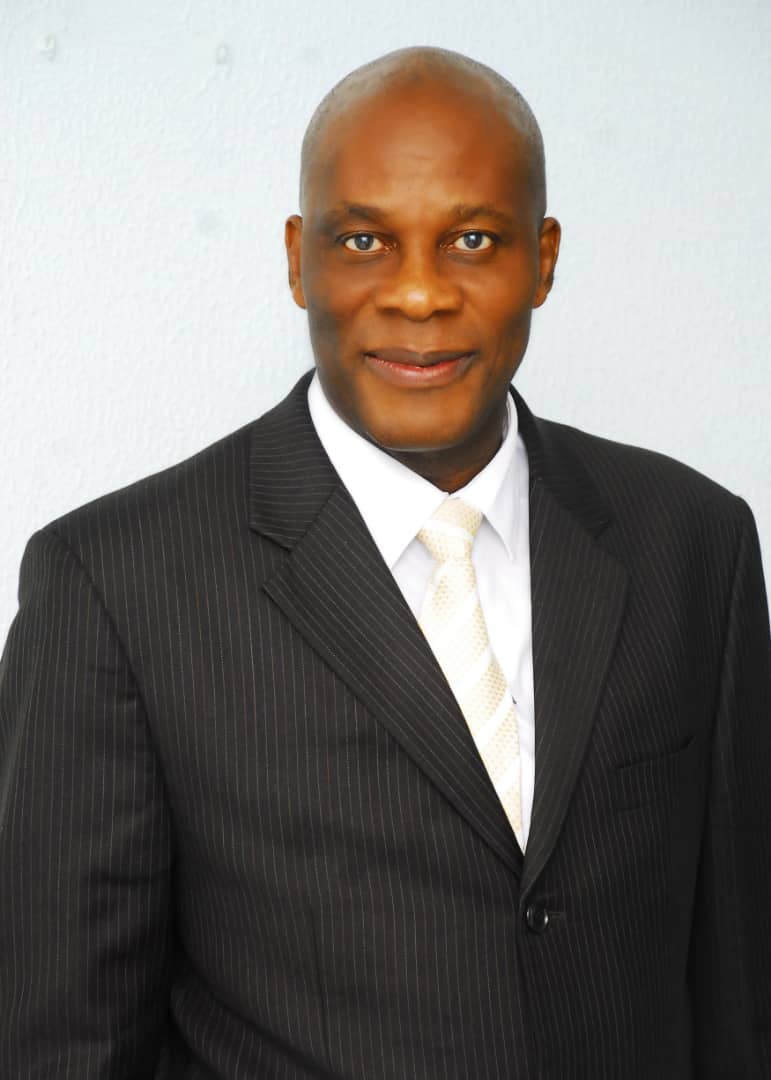

By Chris Onuoha
Emevwo Biakolo is emeritus Professor of Communication at the Pan-Atlantic University where he served as founding Dean of the School of Media and Communication. He studied Family Therapy at Northcentral University Scottsdale, Arizona, and practices in Lagos, Nigeria. His earlier book, The Meaning of Marriage written in 2010 has undergone several reprints, and a second edition is forthcoming.
He is co-founder, with his late wife, Dr. Margaret Biakolo, of the not-for-profit, Natural Family Counseling and Educational Network NAFACEN, an NGO devoted to family therapy, addiction counseling, mental health advocacy and education. He is director of the NAFACEN Center, Lagos.
Prof Biakolo, whose new book, Withness Conversation, is due for launch, in a chat with Vanguard correspondent speaks in a modest manner, how the institution called marriage has eroded its original course, with a snippet of what the new book is about.
In the world today, relationship in general has posed a lot of challenges stemming from broken homes, divorce, domestic violence and even child abuse. As an expert in Family counseling, enlighten us on where and how we got it wrong in the first place.
These problems have been with humanity since the beginning. Critical social and cultural changes in the last 50 years have probably exacerbated them. In the Western hemisphere, this is certainly the case. The rise of the women’s movement, especially feminism since the 1960s may also have contributed to wife-initiated divorce proceedings. For example, divorce in the USA is nearly 50 percent for first marriage, and about 60 percent for second marriages. Also, there are fewer marriages nowadays, and break-ups are easier with cohabitation.
It does seem that the phenomenon of cohabitation and non-marital arrangements are reflecting on the marriage institution, as couples now seem to treat marriage as equivalent to non-marital sexual relationships.
In Nigeria, my hunch is that in addition to these de facto liaisons, that is, cohabitation I referred to earlier, accessibility to information and alternative lifestyles occasioned by the information and communication revolution may be impacting on the stability and durability of marriage and family life. Formal institutional marriages have barely taken root in our cultures anyway. Most of the so-called marriages you find among many demographics take the form of traditional wedding ceremonies. Many couples do not even go to court or church to secure the partnership. That way, break up and other disorders are more likely because they are easier. They were not formalized legally anyway.
The terminology has also changed, do not forget. In the past, you could whip your child and it was regarded as parental correction and discipline. Today, the same action would be classified as child abuse. So, in general, cultural and social developments are at root of the problems you mentioned.
Book upon books, counseling, seminars and workshops, all geared towards finding effective model home, and yet, some homes seem to be on fire. How would your new book proffer solution to this hydra-headed family challenge?
I am wary of panaceas. The idea that one book or two or a thousand books can change cultural developments is not a particularly bright idea. And my new book, Withness Conversations: Love and Commitment in Couple Communication, has no such ambition. My aim is far more modest: I present the challenges couples face in communication, and propose a modality of therapy to help couples at the individual, micro or perhaps mezzo level. It’s rather too much to expect macro-social changes from cultural productions of this sort. I am confident though that therapists and counselors who follow the premises and procedures set out in the book will find it useful as a modality of intervention in couple and family relational difficulties. Couples can also recognize in this book some of the challenges they face and might do well to avoid some of the more serious difficulties.
Single parenting also has its surmounting prejudice. As an expert, how best do you think children from such relationship should be handled without jeopardizing their perception about what quality relationship should be?
This is a particularly difficult issue; it is compounded by ideological interests unfortunately. Not everyone is persuaded about the social good of marriage; in fact, some are convinced and committed to undermining and doing away with the marriage institution. In spite of that, the research literature is clear that children from harmonious two-parent homes have better outcomes in a range of life and performance areas than children from single-parent homes. Nature abhors vacuum. Even when a mother or father is absent in the home, a surrogate, that is a father-figure or mother-figure will inevitably arise in the sub-consciousness of the child. The child sees other model homes from friends and other relatives, so he or she will certainly raise questions why an important figure is absent from their life. All the explanations in the world will not suffice. Some children spend an entire life searching for the missing figure. No single solution can be proposed for all cases; intervention or treatment can only be case by case.
Communication in relationship, according to your new book, is more than a tool. However, we have seen where breakdown ensues after series of interventions. Who is to blame here?
This is not a blame-game. I am not persuaded that we should be hunting for any culprit. In this book, I propose some measures to keep love and commitment alight in relationships and a modality of intervention where a disorder has arisen in the relationship. Like any fire, if you do not keep throwing fuel into it, love will die out. The initial passion, even an intense one, is insufficient to keep the relationship happy and long-lasting. A relationship is like a living organism; you have to feed it and tend it to keep it alive and well.
When a marriage between a normal and schizophrenic person occurs unknowingly, how do one handle such a situation?
If a partner has a serious mental health disorder, he/she need to have adequate treatment. If this person were ill physically, you would get him or her to the doctor. Why not do the same for mental health? Worrying about social stigma is counterproductive. That a person has a health problem is not enough by itself to cause a complete or irreversible breakdown in the relationship.
Lastly, tell us some of the salient take-aways from your new book.
This is a relatively big book with many different dimensions. So people will take different things from it. Some notable things for me concern the understanding of what communication is between couples. The idea that you are not communicating just because you do not talk to each other or not talk enough is trivial. We cannot not communicate. That means we are continuously in communication, whether verbal or non-verbal. You would have to be dead not to communicate.
Also, relationships do not break down by themselves; they do so through a series of behaviors, active or passive. Finally, no breakdown needs to be definitive; there is no problem that couples cannot resolve if they both want to.
The post My new book presents challenges couples face in communication – Biakolo appeared first on Vanguard News.





